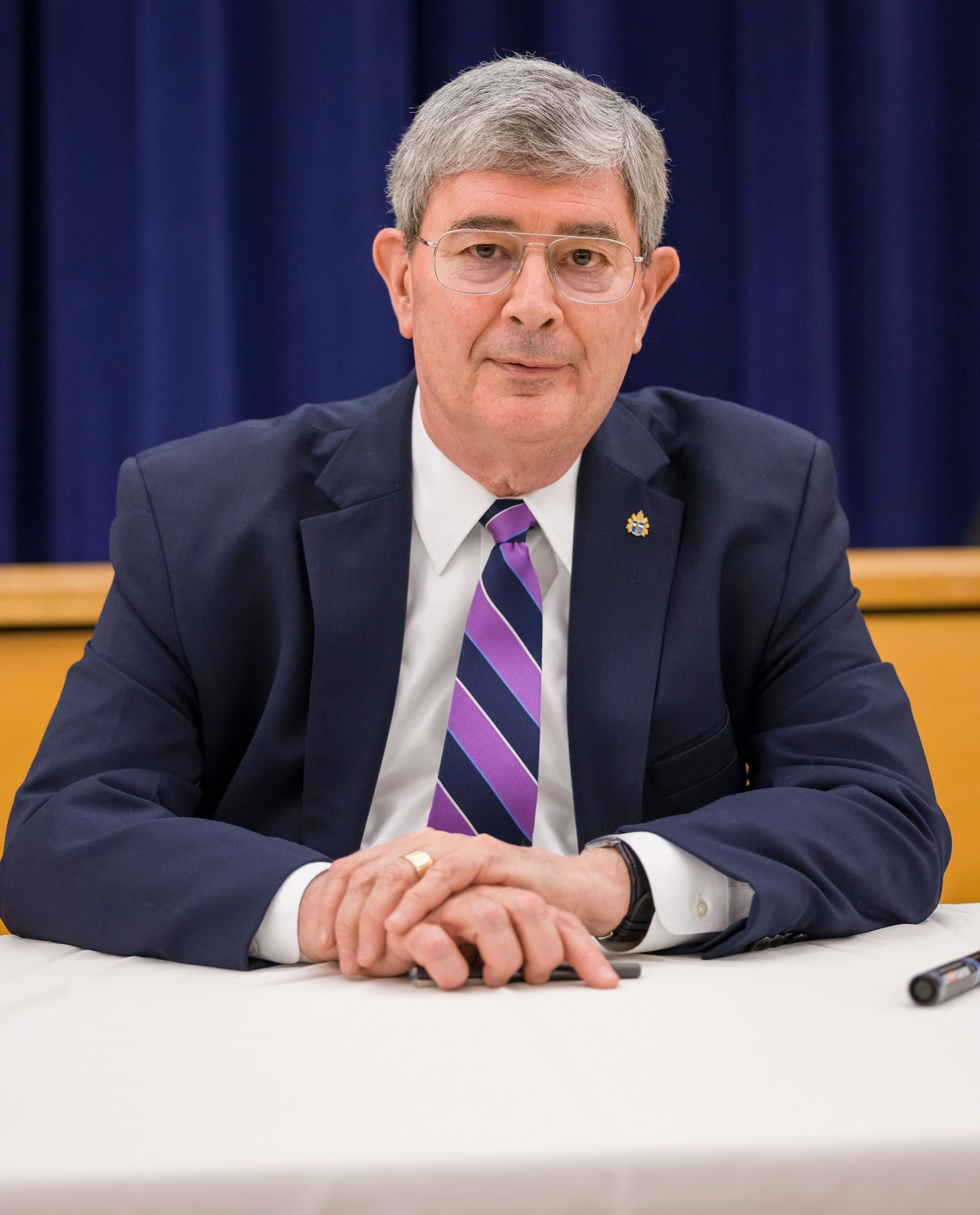The latest self-inflicted blow to the Vatican’s China policy came in mid-July, when the Holy See announced that Pope Francis had “recognized” Bishop Joseph Shen Bin as Bishop of Shanghai—despite the fact that the bishop had been “transferred” to China’s most important and prestigious diocese by the Xi Jinping regime, not by the pope. A few days later, America published a lengthy analysis of this Roman kowtow by Gerard O’Connell, its Vatican correspondent. O’Connell, for his part, drew on what Vatican News described as an interview with Secretary of State Cardinal Pietro Parolin, but what was actually an auto-interview, the cardinal having sent the prewritten Q&A to the various instruments of Vatican media for publication.
One striking revelation in that self-interrogation came when Cardinal Parolin noted that two previous transfers of bishops within China “were carried out without the involvement of the Holy See,” and said that “this way of proceeding appears not to take account of the spirit of dialogue and of collaboration established by the Vatican party and the Chinese party over the years.”
To which one could only respond, what “spirit of dialogue and collaboration”? Does the Vatican seriously believe that a totalitarian regime—one that conducts the world’s most extensive surveillance of its own population, builds genocidal concentration camps for ethnic and religious minorities, blocks international investigation of its role in the global breakout of Covid-19, and publicly announces that all religions in China must be “Sinicized” (i.e., subordinated to the regime’s concept of what China is and should be)—is truly interested in “dialogue and collaboration”? Even if that naive assumption had been the Vatican’s starting premise in the negotiations that led to the 2018 agreement between the Holy See and the People’s Republic of China, shouldn’t China’s subsequent violations of that agreement and its crackdown on Catholics in Hong Kong and elsewhere have prompted a critical re-examination of the premise?
Has the Holy See learned nothing from the behavior of totalitarian regimes throughout history, all of which, without exception, have sought to subordinate Christian communities to regime ideology, be that Nazism, Leninism, or “Xi Jinping Thought”?
I understand the constraints of diplomatic language in a difficult negotiation. Still, there is something self-demeaning and strategically unwise (not to mention morally unsavory) in taking diplo-speak to the extreme of saying, as the cardinal did, that the conversation between the Vatican and Beijing would continue, “trusting in the wisdom and good will of all.” What “wisdom” or “good will” has Beijing shown since 2018? Is its current program of bringing the Catholic clergy of Hong Kong to the mainland for instruction in Sinicization an expression of good will, or an exercise in coercion and intimidation?
The same inability—or stubborn refusal—to grasp the nature of a regime like Xi Jinping’s was evident in the cardinal’s hope that “adequate statutes” would be developed for a Chinese bishops’ conference. But imagine, for the sake of argument, that statutes “adequate” by the standards of Roman canon lawyers were developed, and that a Chinese bishops’ conference were created. Considering the Xi Jinping regime’s record since the Vatican–China agreement was signed in 2018, how could a reasonable person imagine that those statutes would be honored, and that the conference would function according to what Cardinal Parolin called its “ecclesial nature and pastoral mission”? How many times does one have to get gut-punched before recognizing that one’s “dialogue partner” is not playing by Marquess of Queensberry rules?
Then there was Cardinal Parolin’s call for the Chinese authorities to establish a “stable liaison office” for the Holy See in mainland China that would make the Vatican/Beijing dialogue “more fluid and fruitful”: a request, Gerard O’Connell reported, that the Chinese regime has rebuffed before while demanding that the Holy See close its “study office” in Hong Kong. What purpose would this “stable liaison office” serve? Is it the opening wedge to the diplomatic holy grail long sought by certain Italian Vatican diplomats: a Holy See embassy in Beijing? But that would require severing Holy See diplomatic relations with Taiwan, the first Chinese democracy in history. And fantasies of a Vatican “place at the table” notwithstanding, an embassy would add nothing to the Holy See’s leverage with the Beijing regime while further muffling the Vatican’s public voice.
There are few enthusiasts for the current China policy in the College of Cardinals, and an examination of the policy is imperative during the next papal interregnum. That discussion should begin with the understanding that, however noble its intentions, the current policy is a failure that is damaging the Church’s moral authority and witness.
George Weigel’s column “The Catholic Difference” is syndicated by the Denver Catholic, the official publication of the Archdiocese of Denver.

George Weigel is Distinguished Senior Fellow of Washington, D.C.’s Ethics and Public Policy Center, where he holds the William E. Simon Chair in Catholic Studies.
First Things depends on its subscribers and supporters. Join the conversation and make a contribution today.
Click here to make a donation.
Click here to subscribe to First Things.
Image by Peter Griffin licensed via Creative Commons. Image cropped.
rn
The Ones Who Didn’t Convert
Melanie McDonagh’s Converts, reviewed in First Things last month, allows us to gaze close-up at the extraordinary…
The Burning World of William Blake (ft. Mark Vernon)
In the latest installment of the ongoing interview series with contributing editor Mark Bauerlein, Mark Vernon joins…
Bladee’s Redemptive Rap
Georg Friedrich Philipp von Hardenberg, better known by his pen name Novalis, died at the age of…


